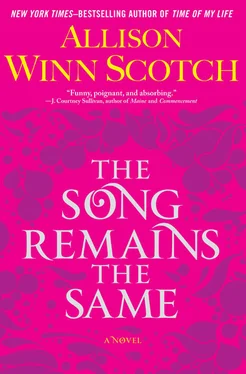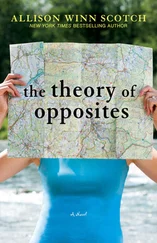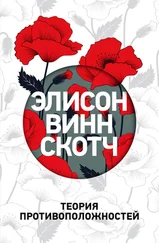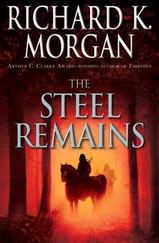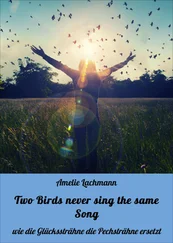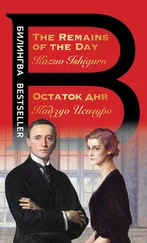J amie and I convene on Saturday for our next interview for American Profiles . The producers want to take advantage of the perfect blast of October air by shooting in Central Park.
“They want to get that melancholy stroll with the leaves crunching in the background, your face looking pensive,” says Anderson when he picks me up in the town car that the show provides. He’s insisted on coming, to stand by and ensure that I’m not in over my head—after all, you’re the girl who saved my life, he says, our little inside, though still truthful, joke—and that Jamie doesn’t take advantage, even though I’ve assured him that he wouldn’t, that he won’t.
“Still won’t reconsider?” I ask Anderson. I know that Jamie has implored him once again for a sit-down, told him that, like it or not, he is part of this story, part of my story.
“Still won’t,” Anderson says. “No more press. No more unnecessary press.”
“You realize you sound a bit like an ass when you say that. Like you’re beating them off with a stick.”
“In case you haven’t read, I am a bit of an ass.” Anderson shakes his head. “Or I was. I’m trying to be better. Not believe the hype. Remind myself that being the star of a now-canceled television show and a few so-so movies really isn’t all that, not bringing world peace or anything.”
“Though Spielberg is calling,” I say, scooting closer, resting my head on his shoulder, letting my eyes float shut under the weight of my exhaustion. The phone rang three times last night between 1:00 a.m. and 3:00 a.m.—hang-ups each time—and I never fully ebbed back into sleep. Instead, I lay there and wondered who was on the other end: Wrong number? Ginger? No, no, not Ginger . My father? That last one seemed the most preposterous, but still, I wondered. At 4:00 a.m., I gave in to the insomnia, furious at myself for even indulging in the fantasy that my mother was wrong—that my dad, after all these years, was extending himself. I rose and brewed the strongest coffee I could stomach. Since five o’clock, I’ve been sitting on my couch, staring at my father’s painting over the mantel, waiting for Anderson to arrive.
The driver drops us off at the Sixty-sixth Street entrance near the old Tavern on the Green. Three horse-drawn carriages wait in the cul-de-sac, the animals looking both annoyed and depressed, their owners smoking cigarettes on a nearby bench. The sidewalks and abutting curbs are littered with gourd-colored leaves, and the air smells like burning pumpkin, like someone on Central Park West has fired up his wood-burning stove high enough to scent the whole city. Jamie is standing by the traverse with my mother and Rory, both of whom will be imparting their own versions of my story on air. They wave in unison, and we cross to meet them.
My mother kisses Anderson hello and pulls me into a tight embrace. I swallow what smells like patchouli oil and clamp down on my gag reflex.
“Are you nervous?” she asks. “Because I remembered something you used to do when you were nervous as a girl, in case you are, in case you need to relax.” I pull back and look at her. “It’s nothing, just something small. An idiosyncrasy of sorts.” She bats her hands, and I can see that clearly, she’s nervous. “Anyway, you used to sing to yourself. Made-up songs. All sorts of here-and-there melodies and lyrics. I’d come into your room on the first day of school or before a swim meet or whatnot, and you’d be staring out the window, just lost in your own place, singing.”
“That’s sweet, Mom.” I kiss her on the cheek. I can sense how that might put me at ease, how music could have been my balm, and I’m grateful that she’s offered this to me. It’s not so difficult to have gratitude, I realize. Even as the new me and the old me struggle to find a middle ground, still, I can evolve somewhere in that space between them. I kiss my mother again, riding this wave of appreciation for her, for my life.
“It’s not much,” she shrugs. “But maybe it will help soothe your nerves.”
“I’m not nervous, but thank you all the same.”
I wave to Rory, who gestures nonchalantly back at me and sort of wrinkles her nose at Anderson as a way of greeting. He mirrors much the same back. There’s a strange tension between them, has been since the gallery show, and I narrow my eyes and assess.
“Are you two okay?”
“Okay,” Anderson bobs.
“Okay,” Rory bobs, too. “Why wouldn’t we be?”
My mother’s cell phone rings, and she croons hello to Tate, wandering off to pet the horses while she talks. I can’t help but notice the massive mound of horse shit in the driveway and watch her dance around it on her way. That’s my mom. I almost laugh out loud. She can always sidestep the shit. I smile because now I can see how this might be admirable, how her optimism might have been her buoy through it all.
Anderson motions me over to a bench, casually shifting his arm around my back once we’re seated.
“So, listen, before you get started, I’ve been meaning to talk to you about Paige.” We watch the camera crews finalize their lighting and map out my blocking. We’ll be solemnly strolling along the footpath between the east and west sides of the park, the better to capture both the changing seasons and our stoic expressions, the type you see on every news program when someone’s life has veered wildly into the crapper: the widower gazing out with arms crossed onto an open lake; the mother of a soldier walking through her neighborhood, her worries on display in the fine lines around her eyes, her brokenheartedness showing in her jawline.
“Paige who?” I ask.
“Paige Connor. That reporter who came by the gallery at the opening. From Page Six.”
“What reporter?” Rory has ambled over, curious about what was so private that Anderson opted not to include her.
“No one you know. And she wasn’t there for the show. Or the art,” Anderson retorts.
“Well, you don’t have to be an asshole about it,” Rory says.
“How am I being an asshole about it? What about that statement said ‘asshole’ to you?”
“I just didn’t appreciate the implicit suggestion that I’m some sort of media whore. And also, FYI, we sold every piece from the show—a new first for us.”
“What are you talking about?” he says.
“What are you both talking about?” I say, watching them, their figurative fur upended, a catfight imminent.
“Nothing,” Anderson says. “This has nothing to do with Rory.” He shoots her a look as if to say, Shut the hell up and keep your nose out of it, which she responds to by shooting him a similar look that says, Get over yours, and who invited you into our business in the first place . “But Paige. She’s a gossip reporter of the worst kind.”
“Is there any less worse kind?” I joke, but it goes nowhere.
“Actually, there is,” Anderson says. “My people won’t even talk to her.”
“Your people?”
He catches himself, then makes a retching sound. “Okay, rewind. Ignore that previous statement. The point is that Paige is vicious. She stops at nothing to break her story, even when publicists have done their best not to let her. You know: offered her better coverage in the future, or given her a scoop on someone else. She’ll run both stories. She’ll burn bridges. She wants to make a name for herself.”
“Is this about the fact that she’s run something on you at least once a week since we’ve been back?” I ask. I start to mention the latest—“Andy’s (Arm) Candy!”—but I can tell he’s serious, so I shut it.
“No, nothing about that at all”—he zips his vest up an inch—“though it goes to show how deep she’ll go. None of my friends are talking about who I’ve been with, what I’m doing. But she has sources out there on both of us, and she’s not afraid to exploit them.”
Читать дальше
